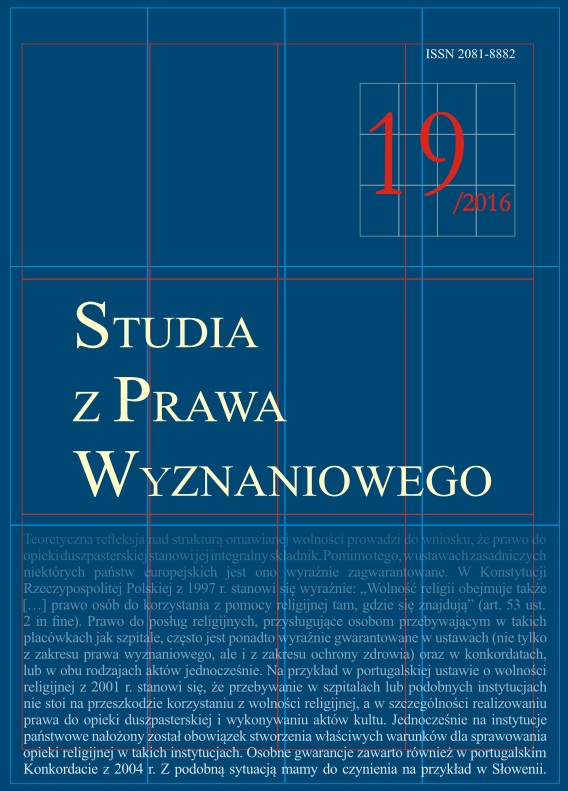Tajemnica adwokacka adwokata kościelnego w prawie polskim. Zakres ochrony i skutki jej naruszenia
Attorney–client privilege of church attorney in the Polish legal system. The range of protection and results of its violation
Author(s): Małgorzata TomkiewiczSubject(s): Law, Constitution, Jurisprudence, Constitutional Law, Criminal Law, Civil Law, Human Rights and Humanitarian Law, Canon Law / Church Law, Philosophy of Law, Sociology of Law
Published by: Katolicki Uniwersytet Lubelski Jana Pawła II - Wydział Prawa, Prawa Kanonicznego i Administracji
Keywords: professional secrecy; attorney–client privilege; church attorney; inadmissibility in evidence
Summary/Abstract: The term of “attorney–client privilege” is not a precisely defined term in the Polish legal system nor in the canon law; however, there is no doubt that in both of those legal frameworks, this privilege is formally regulated and is under protection. Moreover, within the Polish legal system, as well as in the canon law, the attorney–client privilege is protected by specific inadmissibility and restrictions in evidence, and in both cases, this protection, assumes liability of depositary of confidential information for its violation. Also, the axiology of discussed privilege in every mentioned legal framework is similar when it comes to its purpose: the realization of law to an honest and righteous lawsuit, the right of defence and right to protect privacy, including freedom of communication.The fact that providing protection of attorney–client privilege is a subject of concern of both the state and the church legislator, is perceived as primo facie. Less obvious, however, is the answer to the following questions: Are those privileges “respected” by each other and are they protected in a symmetric way in both mentioned legal frameworks? Do people functioning as attorneys in canon law legal framework, may, in the cases governed by Polish law, invoke professional secrecy, and is this kind of invocation producing legal effects in the light of secular law? Does the obligation, which is incumbent upon church attorney as well as secular attorney, to maintain the confidentiality and to prevent from disclosure or unauthorized use of everything he learned by performing professional duties, is respected by secular legislator and vice versa? Does the disclosure of information by the church attorney, acquired while providing legal assistance to a party, in proceedings in ecclesiastical court, affect the criminal liability described in Article 266 of the Penal Code? Through comparative legal analysis of related regulations of canon law and also regulations present in Polish law, this article will try to answer those questions.
Journal: Studia z Prawa Wyznaniowego
- Issue Year: 2016
- Issue No: 19
- Page Range: 195-216
- Page Count: 22
- Language: Polish

